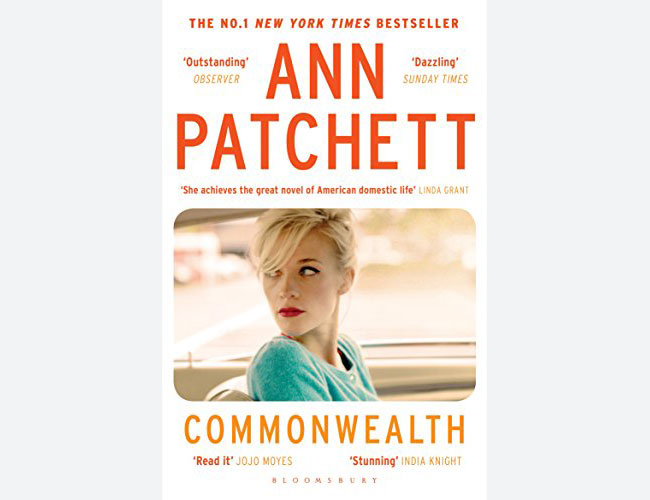As a devoted reader, I couldn’t help but feel captivated by the intricate web of relationships, personal history, and emotional growth found in Ann Patchett’s novel “Commonwealth.” The way the narrative unfolds has left many wondering how did the book Commonwealth end, searching for the deeper meaning behind its closing pages. In this article, we will explore the Commonwealth book ending in detail, delving into the characters’ emotional journeys, as well as discussing the Commonwealth novel conclusion regarding memory and identity.
Let’s kick things off by diving into the key takeaways from the captivating and thought-provoking conclusion of the book Commonwealth.
Key Takeaways
- The novel’s ending highlights the significance of memory, identity, and personal history as Franny reminisces about her childhood.
- Franny’s decision to share her family’s story with Leon Posen results in unexpected consequences for her relationships, especially with her stepbrother Albie.
- The final party scene serves as a reflection on how past actions reverberate into the present, as characters grapple with the fallout of decisions made long ago.
- Through Franny’s personal growth and forgiveness, the novel emphasizes the resilience and capacity for personal acceptance amidst life’s challenges.
- Ann Patchett blends the lines between fact and fiction, using elements of her own life to create the story while exploring the ethics of drawing from real life for artistic purposes.
Dissecting the Impact of Franny’s Revelation on Relationships
Franny Keating’s revelation of her family’s story to her former lover, Leon Posen, has far-reaching consequences on her relationships, particularly with her stepbrother Albie. When Albie learns that his familial experiences have been transformed into a popular novel and then a film, he’s incensed. His confrontation with Leon leads to the collapse of Franny and Leon’s partnership, pointing to the ongoing impact of past decisions on present relationships.
The breakdown between Franny and Leon further emphasizes the tensions between personal history and public disclosure, a recurring theme in Commonwealth’s narrative. Franny’s decision to share her family’s intimate history with Leon for his inspiration not only changes the course of their own relationship, but also has a ripple effect on her connection to Albie. As the Ending of Commonwealth book reveals, such sharing of personal stories can result in unforeseen consequences and lead to unresolved emotional conflict, reinforcing the Commonwealth storyline resolution that personal history holds immense weight in shaping relationships.
Understanding the Thematic Significance of the Final Party Scene
The final party scene in “Commonwealth” serves as a backdrop to reflect on how past actions reverberate into the present. Throughout the novel, characters deal with the fallout of decisions made decades prior—a bee sting leading to a tragic death, a kiss at a christening precipitating two divorces, and a blending of families that shapes each individual uniquely.

Consequences of Past Actions Echoing into the Present
This scene shows the characters coming to terms with their history, as Fix Keating, suffering from cancer, reacts strongly to the portrayal of his life in the film and Franny receiving news of her stepmother Teresa’s declining health. The sequence of events demonstrates the enduring impact of choices made long ago, impacting not just the individuals involved but the entire family structure.
The Role of Memory and Personal History in Shaping Identity
Memory and personal history are central themes throughout “Commonwealth,” with the final party scene illustrating their importance in shaping identity. The characters’ reflections on their past, such as Franny reminiscing on her childhood and the way her experiences with her siblings intertwine with her adult life, demonstrate how memory serves as a cornerstone for individual identity.
This is particularly evident as the elder Franny confronts her contemplative solitude where a memory of Albie and herself remains untouched by Leon’s fictionalization, allowing her a sense of ownership over her past.
Franny’s Journey of Personal Growth and Forgiveness
Franny’s journey throughout “Commonwealth” culminates in her personal growth and forgiveness, especially in the novel’s ending. Franny has developed from a woman who shares her family’s intimate history with Leon into a self-assured individual who recognizes the value of private memories. Her visit to Bert after the party, forgiveness towards her parents for the disruption caused in her childhood, and her reconciliation with the memories of her deceased brother Cal, indicate a profound maturation.
Her growth is punctuated by her realization of happiness despite the myriad complications and challenges faced over the years, showing a resilience and capacity for personal forgiveness and acceptance.
The Author’s Perspective on Fiction and Reality in Commonwealth’s Ending
In Ann Patchett’s captivating Commonwealth novel conclusion, she seamlessly merges fiction and reality, closely drawing from her own personal experiences to frame the story. Patchett acknowledges that while the events in Commonwealth did not occur exactly as written, the emotions and feelings conveyed are derived from her own life. This intricate connection between fiction and reality mirrors the way Franny’s family story is appropriated and altered by her former lover, the writer Leon Posen, within the novel.
This interplay of fact and fiction raises thought-provoking questions about the ethics of using real-life experiences to create art and explores how these representations can affect the individuals portrayed in the story. How did the book Commonwealth end, and what does the author have to say about the relationship between truth and fiction in storytelling? Patchett’s candidness about her creative process and the autobiographical elements woven into Commonwealth provides readers with a unique lens through which to view not just the novel’s ending but also the nature of storytelling itself.
Culminating in a moving and introspective conclusion, Commonwealth offers a rich exploration of memory, identity, and personal history while also examining the consequences of our actions on our relationships and the people around us. Ann Patchett’s masterful storytelling and willingness to draw from her own experiences create a novel that is both engaging and thought-provoking, leaving readers with a newfound appreciation for the fine line between fiction and reality in the world of literature.
FAQ
How did the book Commonwealth end?
The novel concludes with Franny Keating visiting her father, Bert Cousins, and reminiscing about a personal childhood memory that was not shared with her former partner, Leon Posen, and therefore, untainted. This introspective moment highlights the themes of memory, identity, and personal history that are central to the book.
What impact did Franny’s revelation have on her relationships?
Franny Keating’s decision to share her family’s story with Leon Posen led to the collapse of their partnership, causing tensions and rifts within her family. This further emphasized the ongoing effects of past decisions on present relationships and the recurring theme of the conflict between personal history and public disclosure in the novel.
What is the thematic significance of the final party scene in the novel?
The final party scene serves as a backdrop to demonstrate how past actions reverberate into the present. Characters are shown coming to terms with their history, and struggling with the enduring impact of choices made long ago on their lives and relationships. It also highlights the role of memory and personal history in shaping identity.
How does Franny’s character develop throughout Commonwealth?
Franny’s journey throughout the novel culminates in personal growth and forgiveness. She evolves from a woman who shares her family’s intimate history with Leon Posen into a self-assured individual who recognizes the value of private memories. Her growth is punctuated by her realization of happiness despite the numerous challenges faced over the years.
How does the author, Ann Patchett, blend fiction and reality in the novel?
Patchett draws from her own life experiences to frame the novel, acknowledging that while the story events did not occur as written, the feelings and emotions are closely derived from her personal experiences. This interplay of fact and fiction questions the ethics of drawing from real life to create art and explores how such representations can affect the individuals portrayed.
